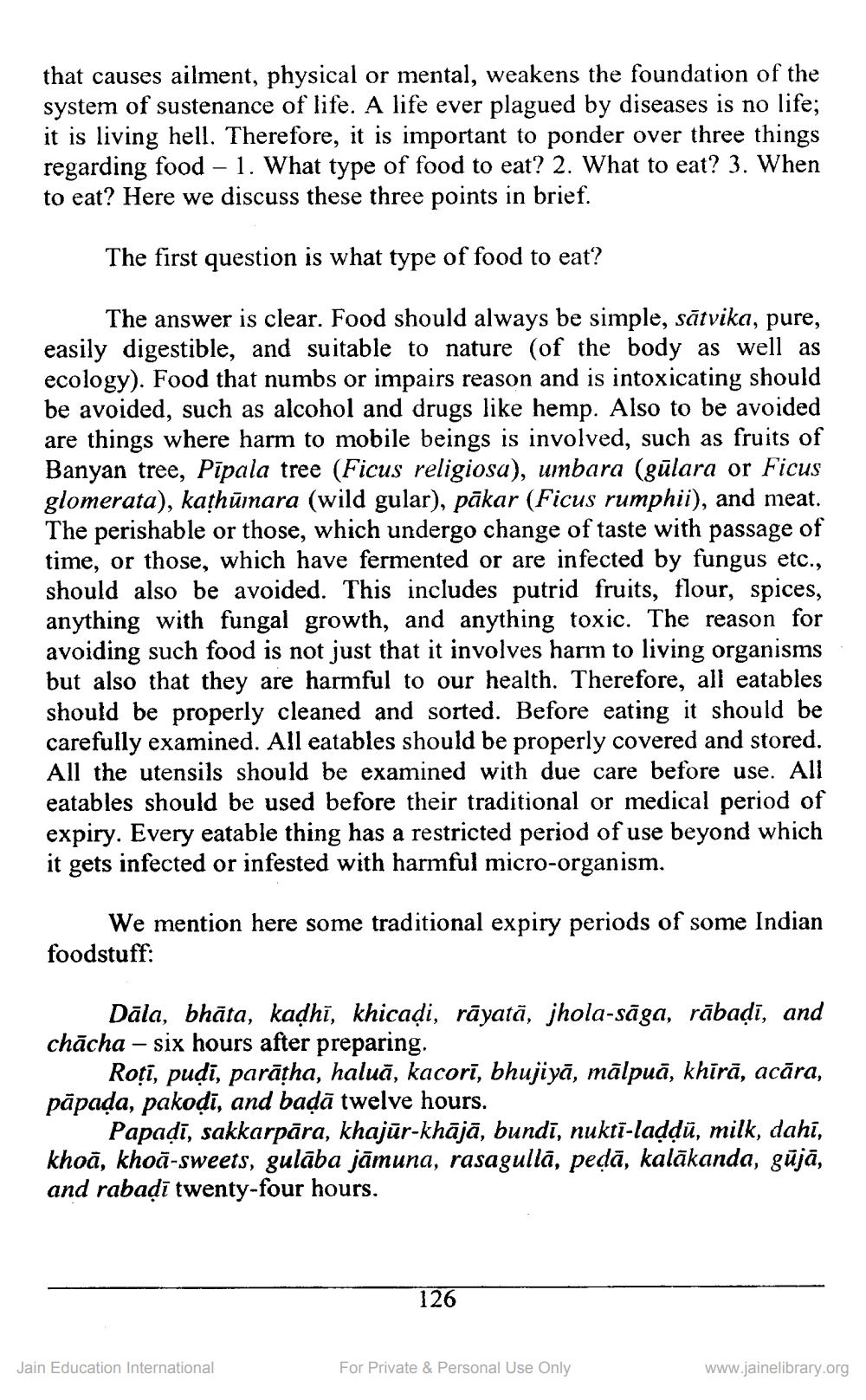________________
that causes ailment, physical or mental, weakens the foundation of the system of sustenance of life. A life ever plagued by diseases is no life; it is living hell. Therefore, it is important to ponder over three things regarding food - 1. What type of food to eat? 2. What to eat? 3. When to eat? Here we discuss these three points in brief.
The first question is what type of food to eat?
The answer is clear. Food should always be simple, sātvika, pure, easily digestible, and suitable to nature (of the body as well as ecology). Food that numbs or impairs reason and is intoxicating should be avoided, such as alcohol and drugs like hemp. Also to be avoided are things where harm to mobile beings is involved, such as fruits of Banyan tree, Pīpala tree (Ficus religiosa), umbara (gūlara or Ficus glomerata), kaṭhūmara (wild gular), pākar (Ficus rumphii), and meat. The perishable or those, which undergo change of taste with passage of time, or those, which have fermented or are infected by fungus etc., should also be avoided. This includes putrid fruits, flour, spices, anything with fungal growth, and anything toxic. The reason for avoiding such food is not just that it involves harm to living organisms but also that they are harmful to our health. Therefore, all eatables should be properly cleaned and sorted. Before eating it should be carefully examined. All eatables should be properly covered and stored. All the utensils should be examined with due care before use. All eatables should be used before their traditional or medical period of expiry. Every eatable thing has a restricted period of use beyond which it gets infected or infested with harmful micro-organism.
We mention here some traditional expiry periods of some Indian foodstuff:
Dāla, bhāta, kaḍhĩ, khicaḍi, rāyatā, jhola-sāga, rābaḍī, and chacha - six hours after preparing.
Roți, pudi, parāṭha, haluā, kacorī, bhujiyā, mālpuā, khīrā, acāra, pāpaḍa, pakoḍī, and baḍā twelve hours.
Papadi, sakkarpāra, khajūr-khājā, bundī, nuktī-laḍḍū, milk, dahi, khoā, khoa-sweets, gulāba jāmuna, rasagullā, peḍā, kalākanda, gūjā, and rabaḍī twenty-four hours.
Jain Education International
126
For Private & Personal Use Only
www.jainelibrary.org




